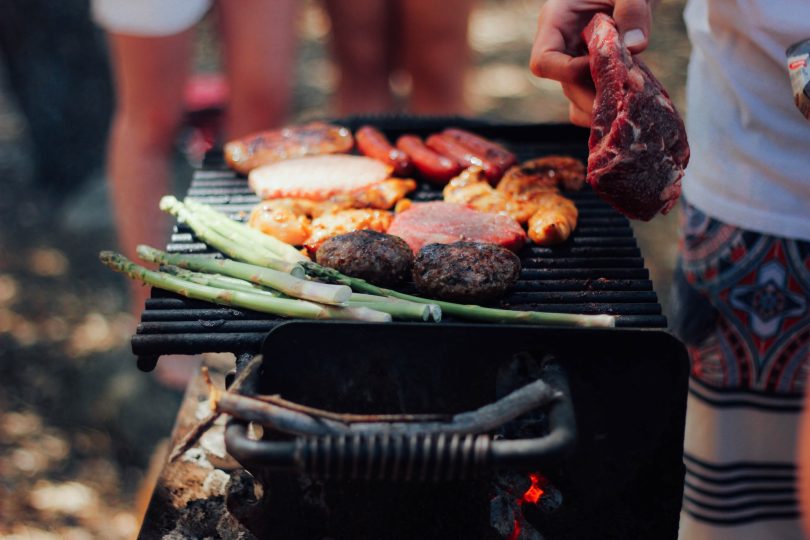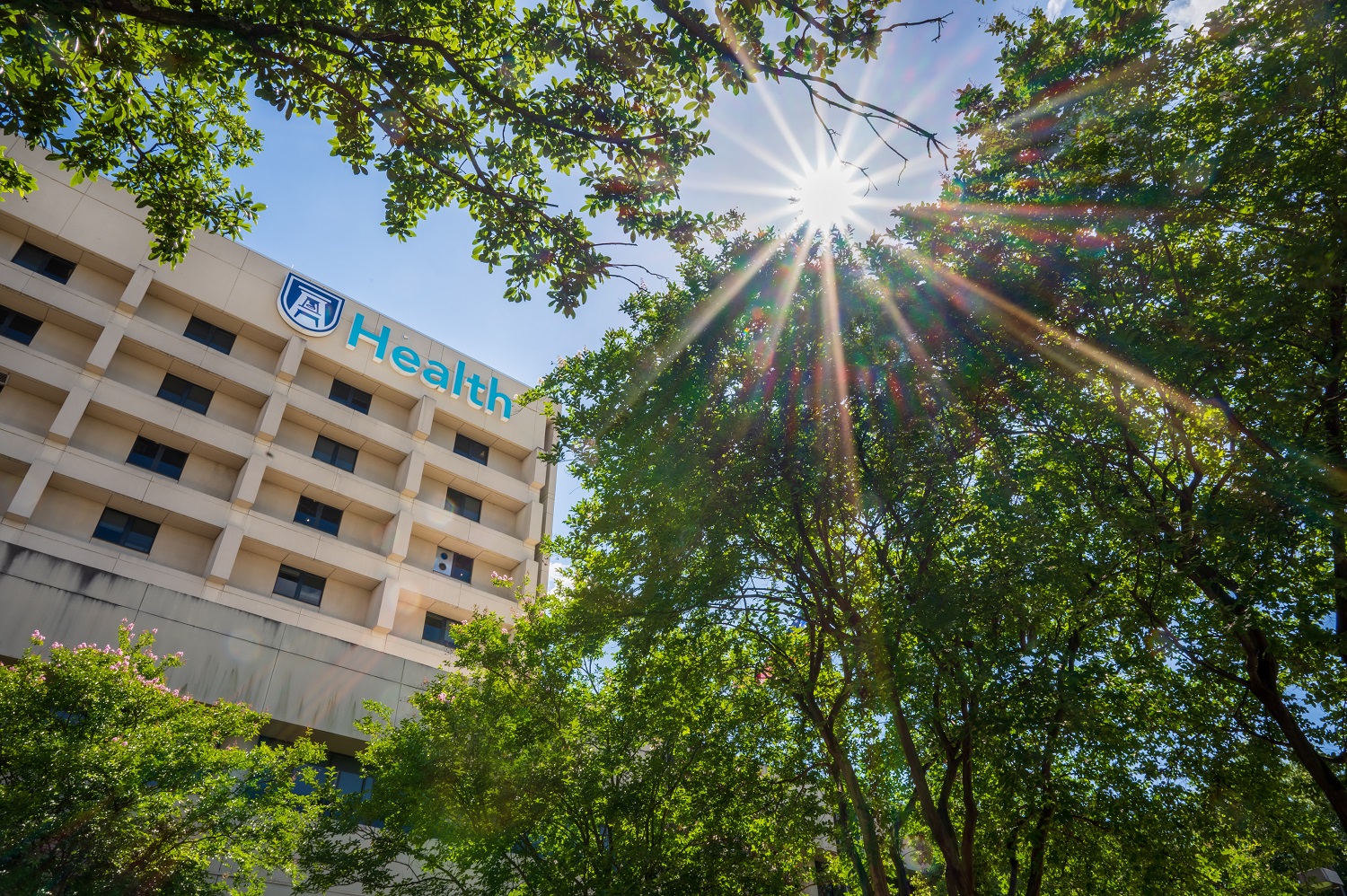What to do? Don’t banish the barbecue — you can have your meat and grill it too! The registered dietitians at the Georgia Cancer Center at Augusta University, offer these tips to reduce your risk:
- Partially pre-cook meats in the oven or microwave. Microwaving meat for two minutes before grilling reduces HCA content by 90 percent. Pouring off the liquid that forms during microwaving further decreases HCAs. Place partially cooked meat on grill immediately to avoid bacteria and other food pathogens that can cause illness.
- Marinate meat before grilling. A marinade can reduce HCAs by as much as 99 percent. Experts suspect that typical marinade ingredients of olive oil, vinegar, citrus juice, herbs and spices may help prevent HCA formation or act as a barrier. Marinating meat, poultry and fish for a minimum of 30 minutes can help reduce the formation of HCAs.
- Create a barrier between the heat source and your food. Line the grill with aluminum foil, poking small holes in the foil so some fat can drain away. Or increase the space between the charcoal and food to minimize charring. Cooking food in the center of grill and flipping frequently can also help to reduce charring.
- Trim away. Cut away visible fat and chicken’s skin to reduce the amount of fat dripping into the flames. Remove any burnt or charred portions before eating.
- Shorten grill time. Use a thermometer and choose thinner, leaner cuts of meat. Cutting meat into smaller portions and mixing with vegetables can help to cut down on cooking time.
- Eat less meat. Tofu or veggie burgers are a healthier choice and produce few, if any, HCAs or PAHs.
- Mix up your meat choices. Choosing what meat to grill is equally as important as how you grill it. Diets high in red and/or processed meats are linked to an increased risk of colorectal cancer. The American Institute for Cancer Research recommends eating no more than 12-18 oz of cooked red meat per week. Instead of red meats, try mixing it up with fish, chicken, or turkey with different spices, sauces, herbs, and more.
- Grill more vegetables or fruits. These foods don’t produce HCAs and are beneficial elements in a cancer protective diet. Try grilled portobello mushrooms, onions, green and red bell peppers, zucchini, broccoli, potatoes, papaya, pineapple, and mango. Alternate small pieces of meat with vegetables or fruit on skewers to maximize flavor and minimize harmful chemicals.
What’s Your Cancer Risk?
If you’re concerned about your risk of developing certain cancers, the Georgia Cancer Center at Augusta University can help. Visit augustahealth.org/cancer, search for Cancer Risk and choose any of several quizzes available to assess your risk. Still concerned? Call our Cancer Information hotline at 888-365-0747.


